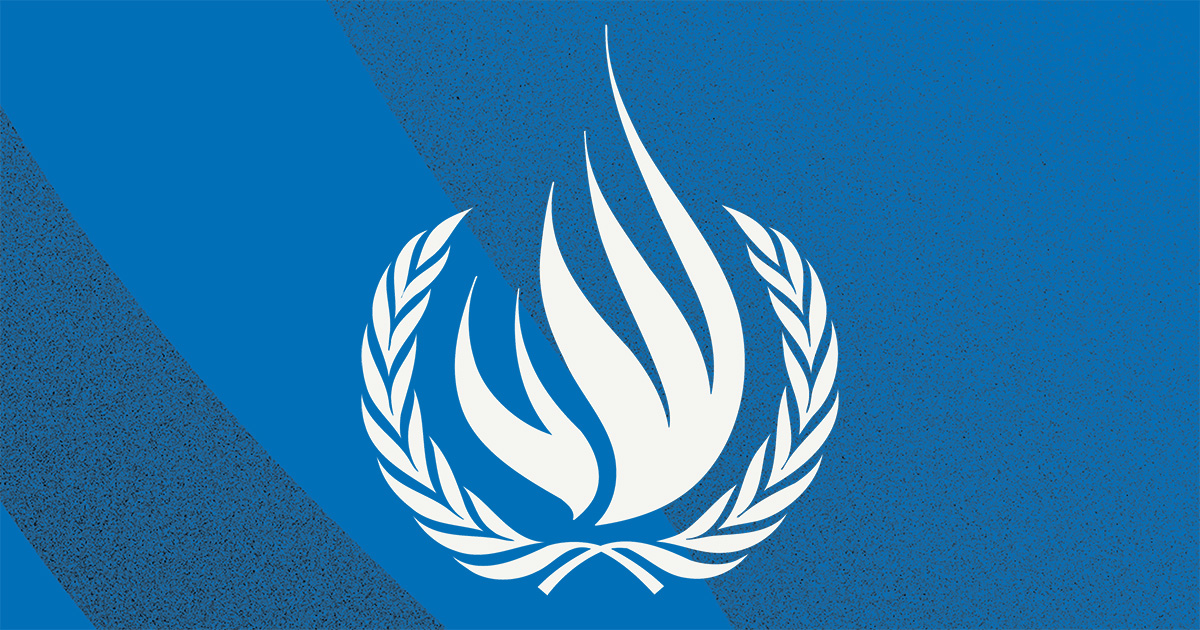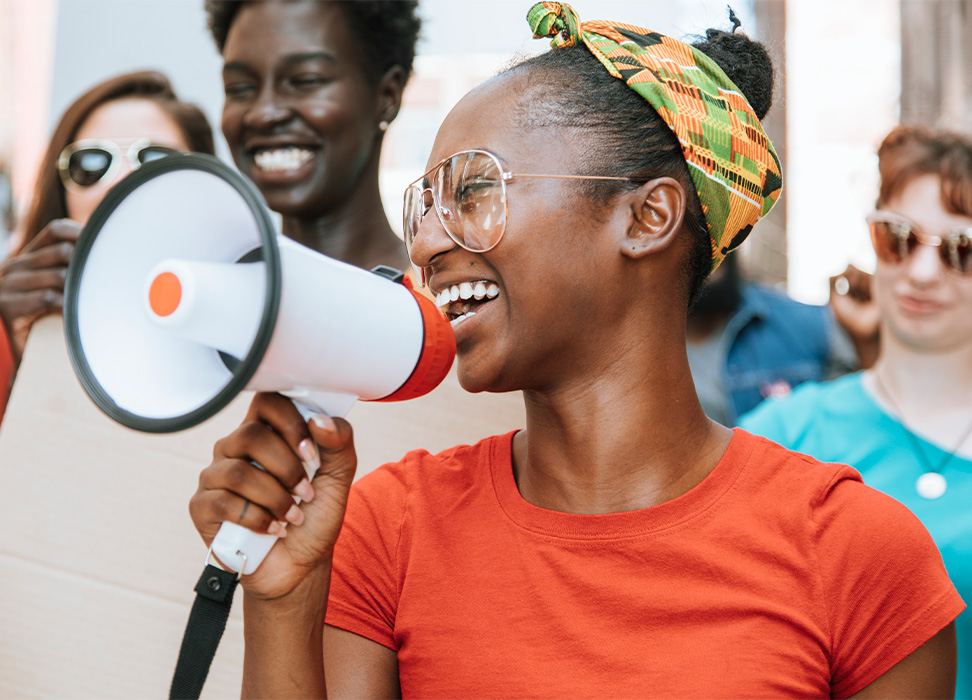
It was during the COVID 19 lockdowns that Shanley Clémot McLaren began noticing the rise of online sexism and online harassment of women flooding social media and instant messaging platforms.
“I didn"t even know that cybersexism existed before,” said Clémot McLaren, a 25-year-old feminist activist from France.
“During the pandemic our lives went online, and with the increased use of social media came this explosion of online gender-based violence. It was massive: All these accounts displaying intimate content of girls and young women without their consent to publicly shame them on the digital space and without any moderation by platforms.”
Although she started reporting these posts and comments to social media platforms, the content continued to surge. There were accounts organized by city or town, using personal information of victims such as names, addresses, phone numbers and schools. “It went viral,” she said.
So Clémot McLaren and other young women activists decided to launch #StopFisha, a platform dedicated to combatting image-based sexual abuse and online gender-based violence. “Fisha" is French slang for “afficher," which means to humiliate or shame someone publicly.
Since then, the work of #StopFisha has led to the shutdown of thousands of accounts and has helped pass laws in France to tackle online and technology-facilitated gender-based violence, including sextortion and deepfake sexual abuse, and influenced policies at the European and international level.
Assisting victims
Staffed by volunteers, the organization tracks and reports accounts, offers legal and psychological assistance to victims, raises awareness of cybersexism, and advocates for more measures to be implemented at the local, national and global scale.
“Digital rights are human rights,” said Clémot McLaren, a student at SciencesPo in Paris. “The online violation of women"s rights is a violation of our fundamental rights,” said the activist, who coordinated “Combatting Cybersexism”, a guide for victims of online and technology-facilitated gender-based violence and a call for platforms and governments to take responsibility about the dangers of cybersexism.
“These girls were isolated and faced a lot of distress, so this hashtag became a counter movement online, like a big wave that went viral. More viral than those “fisha” accounts.”
Rise of online violence
Experts said the rise of online gender-based violence, including online harassment of women, is a serious problem worldwide.
A 2020 study by Plan International conducted in 31 countries across continents showed that 58 percent of girls and young women, aged 15–25 years, had experienced online harassment.
Online gender-based violence against women and girls can take different forms, such as harassment, sexual harassment, revenge porn, threats of rape or sexual assault, stalking, bullying, defamation, hate speech and exploitation, among many, and can lead to sexual assault or murder.
“Online violence against women and girls is a form of gender-based violence, a violation of the right to be free from violence, which is protected by international human rights law,” said Alicia Pons, a human rights officer in the Women"s Rights and Gender Section, UN Human Rights. “Being abusive can’t be justified by freedom of expression.”
Women and girls who are victims of technology facilitated gender-based violence suffer long-term and severe psychological and social consequences, sometimes even leading to death by suicide.
“
Online gender-based violence is not only a human rights violation, but also severely affects the enjoyment of other human rights.
“
Alicia Pons, gender expert at UN Human Rights
While technologies have developed faster than legal frameworks on online gender-based violence, existing international and regional human rights instruments establish clear obligations for States to protect women and girls’ rights to be free from violence, Pons noted. But more is needed.
“We need actions at all levels,” Pons said, adding that the Secretary General and the Special Rapporteur on violence against women have called on States to adopt laws and policies that protect women and girls from online and technology-facilitated violence, improve reporting mechanisms and transparency, regulate tech and social media companies, and hold perpetrators accountable.
With life moving increasingly online, digital technologies provide opportunities and risks for the promotion of the rights of women and girls. Effectively tackling gender-based online violence requires responses that are rooted in human rights law.
For Yoojin Kim, a human rights expert on digital technology at UN Human Rights, legal and policy frameworks must be carefully crafted to prevent unintended consequences that could undermine the right to freedom of expression and participation. Overly broad or vague laws and policies, for example prohibiting nudity or obscenity, can stifle important discussions on topics like sexuality, gender and reproductive health.
“Policies need to be framed also within the broader framework of human rights that address the structural discrimination, violence and inequalities that women and girls face and seek to create an enabling environment for achieving gender equality,” Kim said.
UN Human Rights provides technical assistance to member States on addressing all forms of gender-based violence, and advocates for the implementation of States’ obligations to eliminate gender-based violence. In July 2024, the Office published a report on solutions to promote digital education for young people and to ensure protection from online threats.
AI and deep fakes
Clémot McLaren said that while social media platforms have existed for years, the development of new technologies has exacerbated the problem of cybersexism, which she says is a continuation of everyday offline sexism.
“We see that with AI there are more tools, more weapons used against minorities and more specifically against women and girls,” she said. “Today 96% of the deepfakes available online are pornographic, and 99% of them depict women and girls.”
As a gender and digital policy advisor at the French Ministry for Europe and Foreign Affairs, Clémot McLaren is helping take the fight to a global scale. #StopFisha is one of the partners of the Laboratory for Women’s Rights Online, a French government-backed international platform for dialogue and an incubator for transnational projects which aims to fight online and technology-facilitated gender-based violence.
“Because cybersexism is a global problem we need to find global solutions,” she said, adding that a lack of moderation by many platforms was fueling impunity.
“Masculinist” culture
#StopFisha volunteers spend a great amount of time monitoring online trends to understand online sexist rhetoric emerging in the digital world. Of particular concern right now is a “masculinist online culture.”
“These masculinist movements are investing in the digital environment and social media, and are gaining massive popularity, often among young men and boys,” she said. “We see a lot of masculinist influencers who are questioning our rights to abortion, to sexual and reproductive health, to how we dress, or if we should be allowed to go out after a certain time.”
Clémot McLaren, a laureate of the 2024 Young Activists Summit, said that while there has been progress their global campaign to hunt down cybercriminals and fight for justice is far from over. The #StopFisha women, who have developed a strong bond among themselves, are determined to further their reach and are building alliances with organizations from Mexico to Germany to countries in Africa.
“This is a huge fight, and leading this fight collectively is key.”










